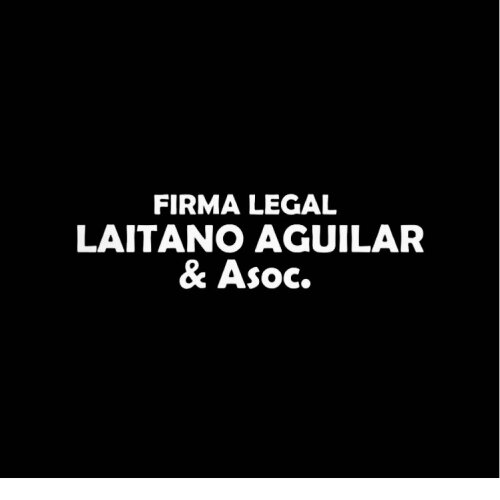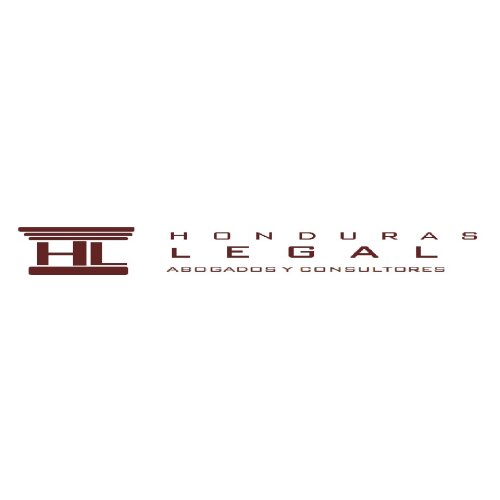Best Administrative Lawyers in Tegucigalpa
Share your needs with us, get contacted by law firms.
Free. Takes 2 min.
List of the best lawyers in Tegucigalpa, Honduras
About Administrative Law in Tegucigalpa, Honduras
Administrative law in Tegucigalpa, Honduras refers to the legal framework that governs the relationship between individuals and the government's administrative agencies. It covers a wide range of areas, including public administration, public finance, public procurement, and citizen rights. The administrative process involves the enforcement of laws, regulations, and policies set by government institutions.
Why You May Need a Lawyer
There are various situations in which you may require the assistance of a lawyer who specializes in administrative law. Some common scenarios include:
- Challenges or disputes with government agencies: If you have issues regarding public services, licensing, permits, or other administrative matters, a lawyer can help represent your interests and ensure proper legal procedures are followed.
- Administrative appeals: If you wish to challenge a decision made by a government agency, an attorney can guide you through the appeals process.
- Grievances against public officials: If you believe a public official has acted unlawfully or violated your rights, a lawyer can help you navigate the legal system to seek appropriate remedies.
Local Laws Overview
Key aspects of local laws relevant to administrative matters in Tegucigalpa, Honduras include:
- Constitutional Law: The Honduran Constitution provides the foundation for administrative law, outlining the rights and obligations of individuals and the structure of government institutions.
- Administrative Procedure Law: This law establishes the legal procedures that government agencies must follow when carrying out administrative tasks, including decision-making, public consultations, and the right to be heard.
- Decentralization Laws: These laws define the powers and responsibilities of local municipalities and decentralized government entities, allowing for the delegation of certain administrative functions.
Frequently Asked Questions
1. What is the process for filing an administrative appeal?
If you wish to challenge a decision made by a government agency, you must typically file an administrative appeal within a specified time frame, providing reasons for your appeal. This initiates a review process that may involve presenting evidence and arguments before an administrative tribunal or superior authority.
2. Can I request information from government agencies under the Right to Information laws?
Yes, the Right to Information Act allows individuals to access public information held by government agencies, subject to certain exceptions for matters of national security or privacy. You can send a formal request in writing to the relevant agency, specifying the information you seek.
3. How can I report misconduct or corruption by a public official?
If you have evidence or suspicion of misconduct or corruption by a public official, you should report it to the appropriate authority. This may include the Public Ministry, the National Anti-Corruption Council, or the General Internal Affairs Office, depending on the nature of the alleged offense.
4. Are there any time limits for challenging administrative decisions?
Yes, there are usually time limits for filing administrative appeals. It is important to consult with a lawyer as soon as possible to determine the specific time frames applicable to your case, as they can vary depending on the nature of the decision and the relevant laws.
5. Are there any alternative dispute resolution mechanisms for administrative matters?
Yes, in addition to administrative appeals, some administrative disputes can be resolved through mediation or negotiation processes. These alternative methods can often be faster and less formal, promoting amicable resolutions without going to court. Consulting with a lawyer can help determine if alternative dispute resolution is suitable for your situation.
Additional Resources
Here are some resources, governmental bodies, and organizations in Tegucigalpa, Honduras that can provide further assistance or information regarding administrative law:
- The Honduran Ministry of Finance and Public Credit
- The National Administrative Tribunal
- The Honduran Association of Administrative Law
Next Steps
If you require legal assistance in administrative matters in Tegucigalpa, Honduras, consider taking the following steps:
- Identify the specific issue or challenge you are facing with a government agency.
- Research and reach out to qualified lawyers who specialize in administrative law.
- Schedule a consultation to discuss your case and evaluate your legal options.
- Provide any relevant documentation or evidence to your lawyer.
- Follow your lawyer’s advice and guidance throughout the legal process.
Lawzana helps you find the best lawyers and law firms in Tegucigalpa through a curated and pre-screened list of qualified legal professionals. Our platform offers rankings and detailed profiles of attorneys and law firms, allowing you to compare based on practice areas, including Administrative, experience, and client feedback.
Each profile includes a description of the firm's areas of practice, client reviews, team members and partners, year of establishment, spoken languages, office locations, contact information, social media presence, and any published articles or resources. Most firms on our platform speak English and are experienced in both local and international legal matters.
Get a quote from top-rated law firms in Tegucigalpa, Honduras — quickly, securely, and without unnecessary hassle.
Disclaimer:
The information provided on this page is for general informational purposes only and does not constitute legal advice. While we strive to ensure the accuracy and relevance of the content, legal information may change over time, and interpretations of the law can vary. You should always consult with a qualified legal professional for advice specific to your situation.
We disclaim all liability for actions taken or not taken based on the content of this page. If you believe any information is incorrect or outdated, please contact us, and we will review and update it where appropriate.

















